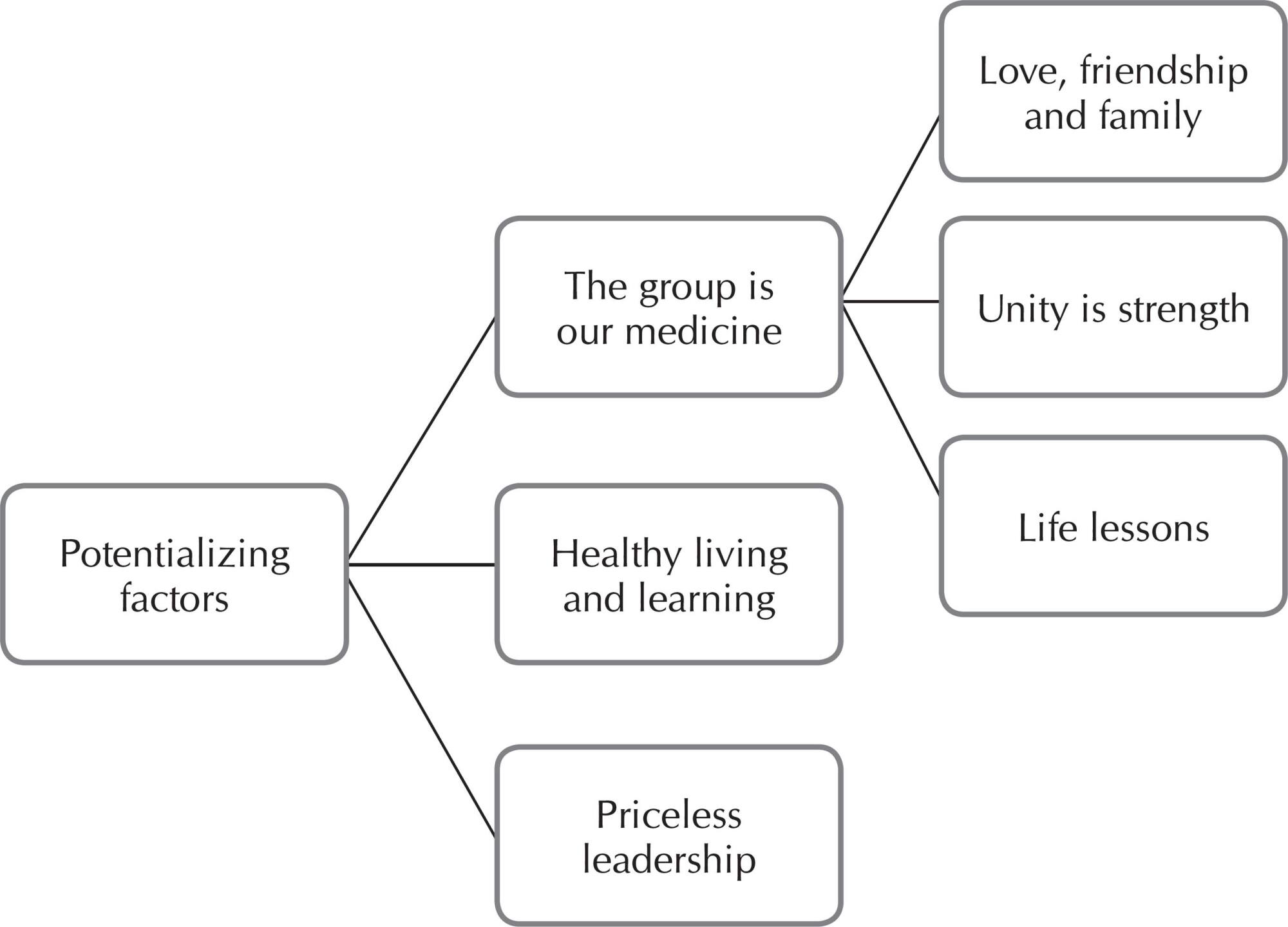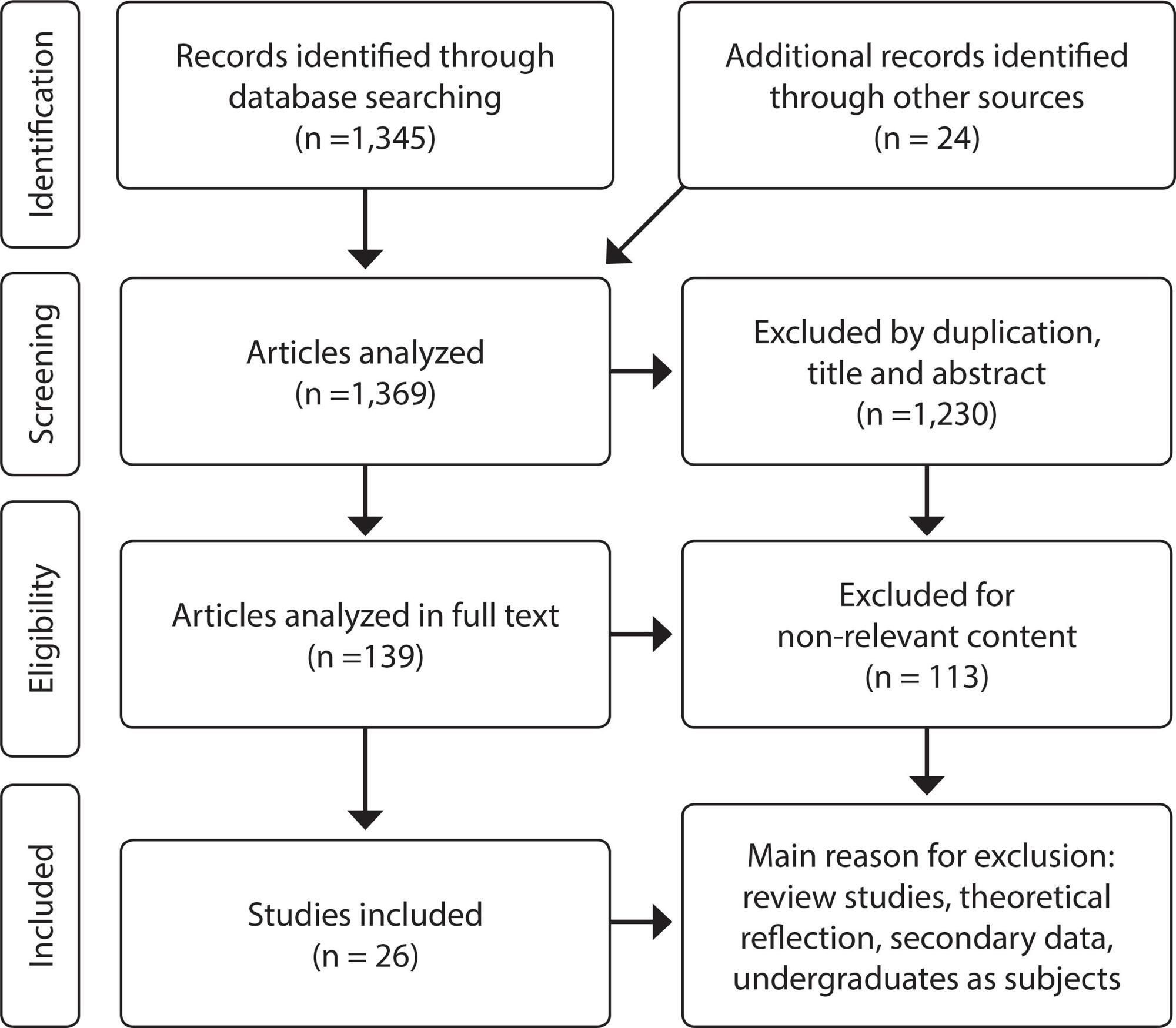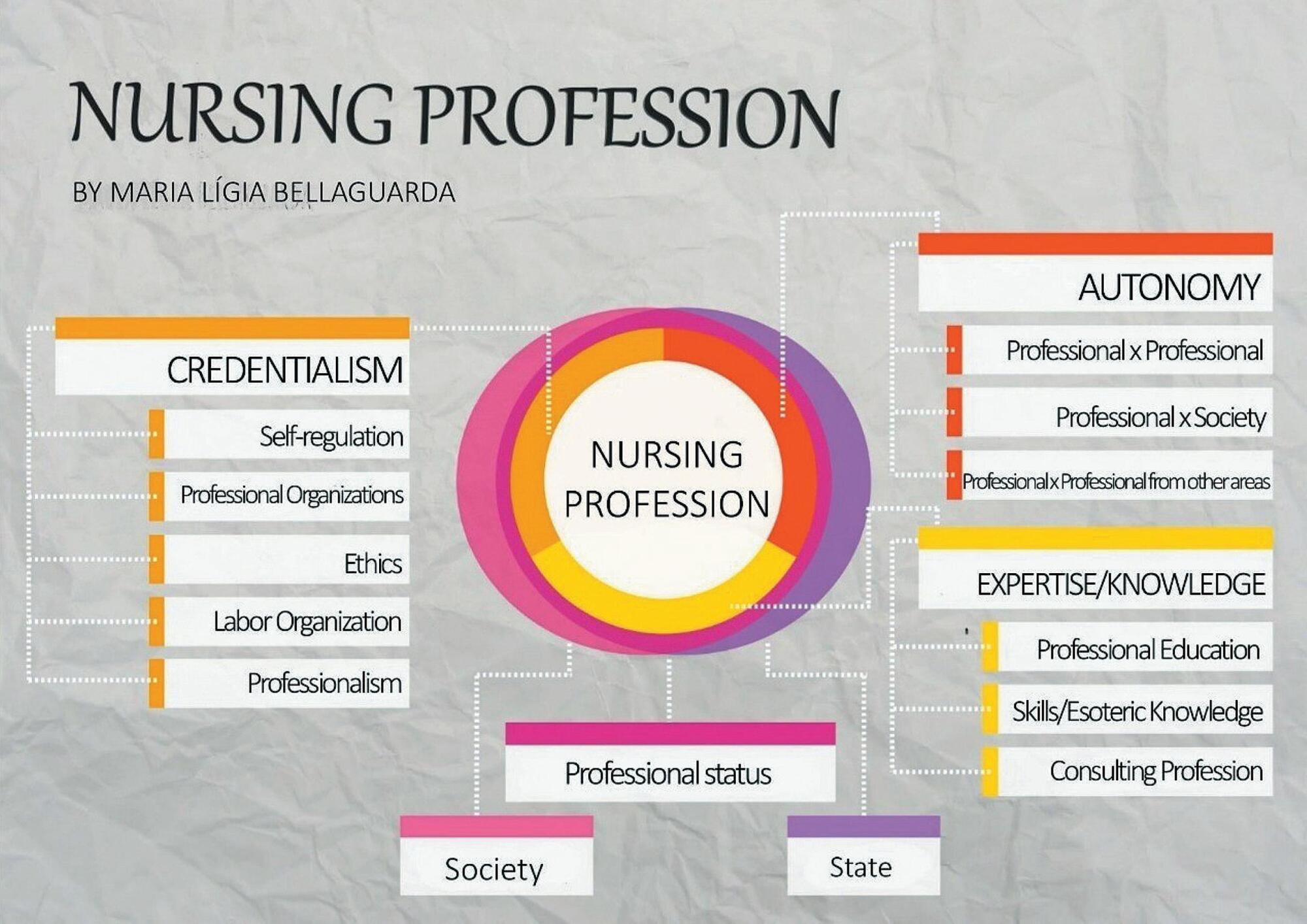-
REVIEW
Research methodology for nursing and health: a book review
Revista Brasileira de Enfermagem. 2016;69(5):1000-1001
01-01-2016
Abstract
REVIEWResearch methodology for nursing and health: a book review
Revista Brasileira de Enfermagem. 2016;69(5):1000-1001
01-01-2016DOI 10.1590/0034-7167-2015-0135
Views0For those interested in nursing and health, the book entitled “Research methodology for nursing and health: from theory to practice”() was released in October 2015, at the 67th Brazilian Congress of Nursing, sponsored by National ABEn. The interest emerged from two organizers: Dr. Maria Ribeiro Lacerda (UFPR) and Dr. Regina Gema Santini Costerano (UNIFRA). Forty-seven […]See more -
REFLECTION
Violence in the workplace in Nursing: consequences overview
Revista Brasileira de Enfermagem. 2016;69(5):996-999
01-01-2016
Abstract
REFLECTIONViolence in the workplace in Nursing: consequences overview
Revista Brasileira de Enfermagem. 2016;69(5):996-999
01-01-2016DOI 10.1590/0034-7167-2015-0133
Views0See moreABSTRACT
Objective:
to reflect on the consequences of workplace violence experienced by nursing professionals.
Methods:
this is a reflection paper based on recent publications related to the subject, particularly researches carried out in Brazil and in other countries.
Results:
exposure to workplace violence has been associated with health problems in nursing professionals, which may be physical damage, emotional manifestations, and psychic disorders. It also affects the employee performance, his or her family and social interactions.
Conclusion:
this phenomenon is potentially noxious and costly, for it leads to suffering, illness, absence from work, and even death. This reflection calls attention moreover to the importance of a safe and adequate health care work environment.
-
REFLECTION
Construcción de la enfermera de práctica avanzada en Catalunya (España)
Revista Brasileira de Enfermagem. 2016;69(5):991-995
01-01-2016
Abstract
REFLECTIONConstrucción de la enfermera de práctica avanzada en Catalunya (España)
Revista Brasileira de Enfermagem. 2016;69(5):991-995
01-01-2016DOI 10.1590/0034-7167.2016690507
Views0RESUMEN
El desarrollo de la enfermera de práctica avanzada (EPA) ha supuesto un reto para las enfermeras en países como EE.UU., Canadá, Gran Bretaña y Australia, entre otros, y desde hace escasos años está siendo considerada en Catalunya y España como un sistema para desarrollar nuevos roles que aporten eficacia y eficiencia al sistema sanitario. El presente artículo pretende conceptualizar la EPA y los modelos de referencia así como contextualizar y reflexionar sobre la EPA en Catalunya, desde el punto de vista de formación y de la implantación de los denominados nuevos roles de enfermería, asimilándolos a la práctica avanzada.
Keywords:Competencia ClínicaEnfermeríaEnfermería de Práctica AvanzadaPráctica ProfesionalRol de la EnfermeraSee more -
REFLECTION
Developing the Advanced Practice Nurse in Catalonia
Revista Brasileira de Enfermagem. 2016;69(5):991-995
01-01-2016
Abstract
REFLECTIONDeveloping the Advanced Practice Nurse in Catalonia
Revista Brasileira de Enfermagem. 2016;69(5):991-995
01-01-2016DOI 10.1590/0034-7167.2016690507
Views0See moreABSTRACT
The development of advanced practice nurses (APN) has proved a challenge for nurses in countries such as the USA, Canada, Great Britain, and Australia among others. It is only in recent years that the system has been considered in Catalonia and Spain as a way to develop new roles to bring effectiveness and efficiency to the health system. From the standpoint of training and implementation of the above-mentioned new nursing roles, the following article aims to conceptualise APN and its reference models, as well as to contextualise and reflect on APN in Catalonia in order to assimilate them into advanced practice.
-
EXPERIENCE REPORT
International academic mobility in nursing education: an experience report
Revista Brasileira de Enfermagem. 2016;69(5):986-990
01-01-2016
Abstract
EXPERIENCE REPORTInternational academic mobility in nursing education: an experience report
Revista Brasileira de Enfermagem. 2016;69(5):986-990
01-01-2016DOI 10.1590/0034-7167-2015-0128
Views0See moreABSTRACT
Objective:
report the experience of international academic mobility in Ireland through the program Science Without Borders during undergraduate education in nursing.
Method:
a report of experience presented in chronological order, with a descriptive nature.
Results:
the opportunity to know and be able to discuss questions regarding health and nursing in Ireland allowed the review of concepts and a more reflective perspective regarding nursing practices. Additionally, the exchange promoted personal strengthening regarding the confrontation and solution of problems, development of technical and scientific abilities, improvement of linguistic competences and construction of personality, independence and maturity.
Conclusion:
regarding such constructive and enriching experience that this mobility provides to students, to the governing authorities, to the population and to Brazilian nursing, sharing this experience is expected to serve as encouragement for those who search for new horizons, with the objective of adding knowledge for their personal and professional life.
-
EXPERIENCE REPORT
Online training for health professionals in three regions of Brazil
Revista Brasileira de Enfermagem. 2016;69(5):981-985
01-01-2016
Abstract
EXPERIENCE REPORTOnline training for health professionals in three regions of Brazil
Revista Brasileira de Enfermagem. 2016;69(5):981-985
01-01-2016DOI 10.1590/0034-7167.2016690506
Views0See moreABSTRACT
Objective:
to describe online training experience aimed at professionals working in the public health service in 27 Neonatal and Pediatric Intensive Care Units, and to reflect concerning the training process and possible improvements in this process.
Method:
this is an experience report study about the online training with multidisciplinary content, planned from the situational diagnosis of 27 institutions. The training target set was 10 participants per institution and per module, including the following topics: Indicators of Quality as a Management Tool, Hand Hygiene, Patient Safety, Intravenous Therapy and Patients’ Chart Record.
Results:
a total of 2,071 active students in the modules, with 1,046 approved. The mean of 76 students per module exceeded the target set.
Conclusion:
experience has shown that online training is comprehensive as a potential tool for the professional technical development and digital inclusion. The online learning system becomes weakened if participants are unaware of the technological resources.
-
REVIEW
Technologies in intensive care: causes of adverse events and implications to nursing
Revista Brasileira de Enfermagem. 2016;69(5):972-980
01-01-2016
Abstract
REVIEWTechnologies in intensive care: causes of adverse events and implications to nursing
Revista Brasileira de Enfermagem. 2016;69(5):972-980
01-01-2016DOI 10.1590/0034-7167.2016690505
Views0See moreABSTRACT
Objective:
to identify the causes of adverse events affecting clients resulting from the use of equipment in intensive care services; to point out the main recommendations for clinical practice to minimize these events and, then, discuss the implications to nursing care.
Method:
integrative and descriptive review on the SciELO, Medline, LILACS, and PubMed databases. Articles were selected based on the inclusion criteria and the structured instrument was applied.
Results:
altogether, 11 articles were selected where three evidence units were outstanding: Equipment failure; inadequate use of equipment; and team failure. Permanent education of professionals; evaluation of production and availability of equipment; and use of checklists are recommended.
Conclusion:
preventing adverse events related to equipment is one of the nursing responsibilities and requires the establishment of defensive barriers to prevent these.
-
RESEARCH
Leads for potentializing groups in Primary Health Care
Revista Brasileira de Enfermagem. 2016;69(5):964-971
01-01-2016
Abstract
RESEARCHLeads for potentializing groups in Primary Health Care
Revista Brasileira de Enfermagem. 2016;69(5):964-971
01-01-2016DOI 10.1590/0034-7167-2015-0102
Views0ABSTRACT
Objective:
to analyze the aspects that potentialize groups in Primary Health Care according to their coordinators and participants.
Method:
This is a descriptive study with a qualitative approach, conducted with a health promotion group affiliated with a Family Health Unit. The data were collected by means of focus groups with participants and community workers who were submitted to thematic content analysis.
Results:
the analysis gave rise to three thematic categories: The group is our medicine; Healthy living and learning; and Priceless leadership.
Conclusion:
the leads identified during the study were as follows: group organization involves investment in motivation and leadership by the coordinators; production of grouping and cohesion is a result of participants and coordinators meeting together, interspersed with dialog, things said and left unsaid that the subjects expressed in the group dynamic; the sense of belonging guarantees their placement in the group based on the recognition of their knowledge and affective, social and health needs.
Keywords:Group ProcessesGroup StructureHealth PromotionNursing in Community HealthPrimary Health CareSee more
-
REVIEW
Patient safety challenges in primary health care: a scoping review
Revista Brasileira de Enfermagem. 2020;73(5):e20190209
07-06-2020
Abstract
REVIEWPatient safety challenges in primary health care: a scoping review
Revista Brasileira de Enfermagem. 2020;73(5):e20190209
07-06-2020DOI 10.1590/0034-7167-2019-0209
Views0See moreABSTRACT
Objectives:
to identify the patient safety challenges described by health professionals in Primary Health Care.
Methods:
a scoping review was conducted on the LILACS, MEDLINE, IBECS, BDENF, and CINAHL databases, and on the Cochrane, SciELO, Pubmed, and Web of Science libraries in January 2019. Original articles on patient safety in the context of Primary Health Care by health professionals were included.
Results:
the review included 26 studies published between 2002 and 2019. Four categories resulted from the analysis: challenges of health professionals, administration challenges of health services, challenges with the patient and family, and the potential enhancing resources for patient safety.
Conclusions:
patient safety challenges for Primary Care professionals are multiple and complex. This study provides insight into resources to improve patient safety for health care professionals, patients, administrators, policy makers, educators, and researchers.

-
Sleep quality and its association with menopausal and climacteric symptoms
Revista Brasileira de Enfermagem. 2021;74:e20201150
07-16-2021
Abstract
Sleep quality and its association with menopausal and climacteric symptoms
Revista Brasileira de Enfermagem. 2021;74:e20201150
07-16-2021DOI 10.1590/0034-7167-2020-1150
Views0See moreABSTRACT
Objective:
to assess sleep quality in menopausal women and its association with symptoms related to this period.
Method:
this is a cross-sectional, analytical and correlational study. Sleep was assessed using the Pittsburgh Sleep Quality Index; and climacteric symptoms, according to the Menopause Rating Scale. To compare the total score and each Menopause Rating Scale domain with the PSQI classification, the Mann-Whitney U non-parametric test was used. P<0.05 was considered significant.
Results:
261 women (67.8%) were classified as bad sleepers. There was a positive and significant correlation between the sleep scale scores and the total menopause score and its domains. Women categorized as poor sleepers had worse scores on the menopause symptom scale.
Conclusion:
women with worse sleep quality revealed greater severity of symptoms related to menopause.
-
ORIGINAL ARTICLE
Eliot Freidson’s sociology of professions: an interpretation for Health and Nursing
Revista Brasileira de Enfermagem. 2020;73(6):e20180950
08-10-2020
Abstract
ORIGINAL ARTICLEEliot Freidson’s sociology of professions: an interpretation for Health and Nursing
Revista Brasileira de Enfermagem. 2020;73(6):e20180950
08-10-2020DOI 10.1590/0034-7167-2018-0950
Views0See moreABSTRACT
Objectives:
to analyze theoretical conceptions of Eliot Freidson’s Sociology of Professions scoped on health and nursing professions.
Methods:
Eight nurses were interviewed, all involved in the development of the professional Council on the timeframe from 1975 to 1986. Documental resources were Laws, Ordinances, Resolutions, Reports, Meeting Minutes and Public Deeds. Information was organized as from literature and Eliot Freidson’s conceptions, and thematic content analysis was carried out.
Results:
the concepts authored by Eliot Freidson allowed for the development of a concept chart that portrays the nursing profession and that may be expanded for the other occupations in the health field, in consonance with professional organization in the country.
Final Considerations:
Eliot Freidson’s framework, in interpretation for nursing, consolidates the profession with relative autonomy, expertise by Nursing Care Systematization and credentialism by professional normalizations.

-
REVIEW
Psychosocial factors in nursing work and occupational risks: a systematic review
Revista Brasileira de Enfermagem. 2021;74:e20200198
01-20-2021
Abstract
REVIEWPsychosocial factors in nursing work and occupational risks: a systematic review
Revista Brasileira de Enfermagem. 2021;74:e20200198
01-20-2021DOI 10.1590/0034-7167-2020-0198
Views0See moreABSTRACT
Objective:
to identify, in international scientific production, the main psychosocial factors in nursing work, found through the Copenhagen Psychosocial Questionnaire (COPSOQ) application.
Methods:
a systematic review study of psychosocial factors at work among nursing professionals, who used COPSOQ in the assessment of work environments.
Results:
fifteen articles were identified, which highlighted as main psychosocial dimensions of nursing work demands, work organization, social relationships and leadership, work-home interface, workplace health and well-being and offensive behaviors.
Conclusion:
the high demands for cognitive, emotional work and work pace were identified in the nursing routine. Management support had a positive impact. Physical and psychological violence and shift work interfere in family life, aggravating the fatigue of these professionals. Interventions for reducing work stress presuppose the identification of psychosocial factors involved in nursing work.
-
ORIGINAL ARTICLE
Factors associated with frailty syndrome in the rural elderly
Revista Brasileira de Enfermagem. 2019;72:14-21
12-05-2019
Abstract
ORIGINAL ARTICLEFactors associated with frailty syndrome in the rural elderly
Revista Brasileira de Enfermagem. 2019;72:14-21
12-05-2019DOI 10.1590/0034-7167-2017-0079
Views0See moreABSTRACT
Objective:
determine the prevalence and factors associated with frailty syndrome (FS) in the elderly in the rural population of Pelotas.
Method:
Quantitative, analytical, transversal study conducted with 820 elderly subjects registered in the Family Health Strategy (FHS) in the rural area in the municipality of Pelotas, from July to October 2014.
Results:
among those evaluated, 43.41% showed FS. These factors were consolidated as associated with the condition: low income (PR: 1.54, p ≤ 0.001), low educ. level (PR: 1.45, p ≤ 0.001), nutritional status (obesity) (PR:1.89, p ≤ 0.001), physical inactivity (PR:1.93, p = 0.003), cognitive deficit (PR:2.07, p = 0.005), and poor self-perceived health (PR: 8.21, p ≤ 0.001).
Conclusion:
the findings may contribute effectively to the establishment of prevention and screening measures for frailty among the elderly by health professionals, especially nurses, aiming to prevent the occurrence of the syndrome and adverse and undesirable outcomes.

-
ORIGINAL ARTICLE
Association between knowledge and adherence to foot self-care practices performed by diabetics
Revista Brasileira de Enfermagem. 2020;73(5):e20190430
07-06-2020
Abstract
ORIGINAL ARTICLEAssociation between knowledge and adherence to foot self-care practices performed by diabetics
Revista Brasileira de Enfermagem. 2020;73(5):e20190430
07-06-2020DOI 10.1590/0034-7167-2019-0430
Views0See moreABSTRACT
Objectives:
to verify the association between knowledge and adherence to foot self-care practices performed by patients with diabetes mellitus type 2.
Methods:
cross-sectional, descriptive study carried out with 197 patients in basic health units located in the Northeast region of Brazil. For data collection, we used a semi-structured questionnaire that addressed issues inherent to knowledge and Diabetes Self-Care Activities.
Results:
we observed that patients with moderate knowledge about self-care practices were more likely to perform foot self-examination, dry the interdigital spaces, moisturize their feet with creams and oils, observe the presence of mycosis and ingrown toenail when compared to patients with insufficient knowledge.
Conclusions:
the patients’ level of knowledge was closely related to the self-care activities carried out, which reinforces the importance of nurses working on training those on essential health care.
-
ORIGINAL ARTICLE
Critically ill COVID-19 patients: a sociodemographic and clinical profile and associations between variables and workload
Revista Brasileira de Enfermagem. 2022;75:e20210119
03-07-2022
Abstract
ORIGINAL ARTICLECritically ill COVID-19 patients: a sociodemographic and clinical profile and associations between variables and workload
Revista Brasileira de Enfermagem. 2022;75:e20210119
03-07-2022DOI 10.1590/0034-7167-2021-0119
Views0See moreABSTRACT
Objective:
To identify the sociodemographic and clinical profile of COVID-19 patients; measure workload and make associations between clinical variables.
Methods:
Cross-sectional study with 150 adult COVID-19 patients in an intensive care unit (from March to June 2020). Data from the electronic medical record in the first 24 hours of hospitalization: gender, age, education, origin, comorbidities, invasive mechanical ventilation, prone maneuver, renal replacement therapy, pressure injury, Braden, Nursing Activities Score, diagnoses, and nursing care. Descriptive statistical analysis, associations between clinical variables and age group.
Results:
Male (55.3%); mean age, 59 years; hypertensive (57.3%); obese (50.6%); diabetic (34%); invasive mechanical ventilation (66.7%); pronated (20.6%); hemodialysis (15.3%); Nursing Activities Score average, 86%. Twenty-eight nursing diagnoses and 73 cares were found.
Conclusion:
Patients required highly complex support. There was a significant association between pressure injury and workload with the prone maneuver. Nursing diagnoses and care reflect the needs of critical patients.
Search
Search in:
Nuvem de Tags
Aged (144) Atenção Primária à Saúde (239) COVID-19 (104) Cuidados de Enfermagem (269) Educação em Enfermagem (151) Educação em Saúde (139) Enfermagem (930) Estudos de Validação (131) Health Education (144) Idoso (208) Mental Health (149) Nursing (987) Nursing Care (306) Patient Safety (151) Primary Health Care (284) Qualidade de Vida (104) Quality of Life (106) Saúde Mental (145) Segurança do Paciente (150) Validation Studies (108)



